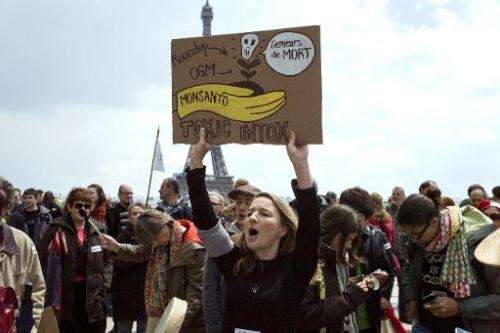EU to allow states to decide to grow GM foods

The European Union will allow member countries to make their own decisions on growing genetically modified (GM) food in a compromise deal on Thursday that followed years of fraught discussions.
"All member states, with the exception of Belgium and Luxembourg, have given their agreement," Greek Agriculture Minister Ioannis Maniatis said after a meeting with his EU colleagues.
The key point of the accord gives individual EU states the right to bar GM crops, even if they have already won clearance on health and safety grounds at the EU level.
Under normal EU procedures, approval in Brussels should mean member states have no further say in the matter.
In practice, however, widespread public unease over GM foods and fierce environmentalist opposition, especially in countries such as France, have resulted in GM approval requests in Brussels being blocked for years.
Last year, US agro-chemical giant Monsanto abandoned efforts to get new approvals, saying it was no longer worth the effort.
To satisfy both sides, the agreement envisages that when a company now applies for GM clearance, a member country can cite objections other than health and safety, such as concern over its impact on the environment or law and order issues, so as to be excluded from EU approval.

At the same time, those countries which want GM crops will be free to go ahead with them.
"The new system guarantees that the member states have a choice," French Environment Minister Segolene Royal said.
Luxembourg's Carole Dieschburg said she feared that the deal will allow the GM companies too much leeway and warning "of a wave of (GM) approvals."
Cultivation of GM foods stokes widespread suspicion in the 28-nation EU on health and environmental grounds.
GM crops, however, have won repeated safety approvals and are imported into the EU in large amounts for animal feed.
Several GM crops have won EU approval but only Monsanto's MON810 maize is still grown after it was first cleared in 1998, with two other corn types plus BASF's Amflora potato abandoned.
Thursday's accord now goes for approval to the European Parliament where it may face considerable opposition.
© 2014 AFP




















